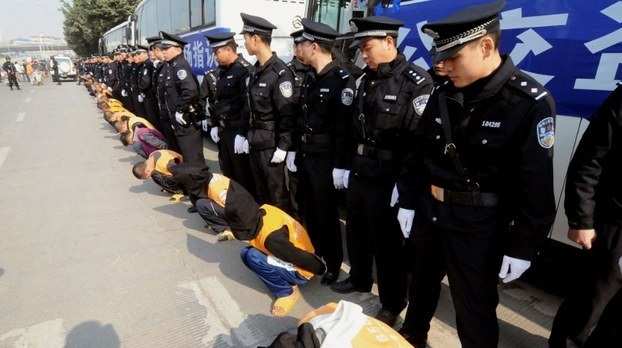Chinese Execution Numbers Remain Shrouded Among Decline
China carries out an estimated 5,000 to 6,000 executions per year according to the Washington Post, with an estimated 140 people sentenced to death every week of 2009, making it the world’s largest executioner. This number is an estimate because China’s number of death sentences is a tightly held state secret. Death Penalty World Wide reports that there has been a slight decrease in death sentences since 2008, where upwards of 7,003 sentences were imposed, however this number is thought to be greatly underestimated.
China’s reasons for execution are for some of the most nonviolent crimes, such as illegal fundraising, graft, drug dealing, and espionage. The Washington Post reports that there exists a legal discrepancy in the treatment of criminals, for example an ordinary citizen may receive a death sentence for financial crimes, when a public official is more likely to get a lighter sentence for the same crime. An example is Zhu Junyi, chief of Shanghai’s Labor and Social Security Bureau, who was convicted of accepting a total of $2.3 billion in bribes and misusing public funds, for which he was sentenced 18 years in prison. While in the same month Du Yimin, a beauty parlor owner, was convicted of illegally collecting less than $50 million, for which she was sentenced to death.
The methods of China executions were shooting and lethal injection from 1996 with the passing of China’s Criminal Procedure Law, until 2010. China discontinued the use of shooting executions per a People’s Supreme Court ruling of February 2009, which held that lethal injection is a more humane form of execution than shooting. Scholars Johnson and Zimring point to China’s use of lethal injection to profit, ease of secrecy, and reduction of family complaints, as the true reasons for china’s switch to an injection. Price is a large determining factor in the case of executions, as China has retired the once common “death van,” a mobile execution laboratory, for the high price in maintaining said vans. An increasingly large reason for the death penalty is China’s growing illegal black market organ trade. In these cases victims are coerced into giving their written consent and have their organs harvested and sold.

The New York Times attributes China’s current decline in executions to globalization, and people’s greater freedom to express themselves online. One advocate of abolitionism is Kong Ning, a former supervising officer in Beijing turned human rights activist, who decided to quit her job and practice law after witnessing 34 prisoners killed in front of her. Following her traumatic experience in 1983, she began studying to become a lawyer, in the hopes of protecting those who have been unjustly sentenced to death.
Numerous other countries also implement capital punishment, with some of the most prominent being Iran, Saudi Arabia, and Pakistan. Iran is notable for its executions, with its forms of execution including hanging, shooting, stoning, and being thrown from a tall height. These more primitive execution methods are implemented for less severe crimes such as adultery.



